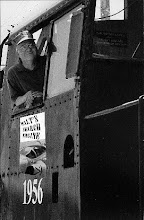Betty White on moving books and repacking them in cartons
Betty White on moving books and repacking them in cartons
By Walter Haan, www.war-books.com, www.southfarmpress.com
New York Times writer Frank Bruni has an article about and an interview with actress Betty White in today's paper. The following lines are from that piece:
"When Putnam asked her to sign 2,500 books in advance of publication, it offered to rent her a hotel or office suite for the task and to provide assistants to unpack the books, turn each to the title page, refresh her pens and the like. That’s pro forma, but she wasn’t having any of it. The boxes were delivered to her house, where she has lived alone since 1981, when Allen Ludden, her husband of 18 years, died. And she has been moving them around and repacking them all on her own.
“'It’s good exercise,' she said..."Damn right! That's what I've been saying for the 28 years of working at Southfarm Press. And I've been ridiculed for saying it because some people don't consider repacking book cartons and moving them around to be exercise. To save them embarrassment, they shall remain nameless.
But I feel vindicated by 89-year-old Ms White's statement that it IS exercise. Of course it is. Book cartons can weigh 30 to 50 pounds. For example, last year I sold 33 cartons all at once of Dudley C. Gould's Follow Me Up Fools Mountain. That meant that I had to move the 33 cartons to the garage door, down one flight of stairs on the lower floor. Then when the truck arrived, I helped load it.
Now you might be asking, "I thought you were the editor and publisher at Southfarm? Couldn't you get a Southfarm flunkie to do that?" Well, I'm also the flunkie, graphic designer and marketing exec. That's the way it is at a small press. You wear multiple hats. I'm always lugging book cartons around to the post office, from room to room, repacking them after adding jackets
or invoices in the cartons. When exhibiting, I've lugged them to the USS Intrepid on the Hudson River and to air shows in Pennsylvania. At the air shows I set up a screened tent beforehand to actually exhibit books in.
I'm 70-years old now and still lugging. I admit that sometimes the cartons feel heavier than I remember. But if Betty White agrees with me that book carton lugging is good exercise, then maybe there's hope that I'll reach 89 too.
Of course I doubt that Nooks and Kindles packed in cartons weigh as much as real books. They're advertised as being lighter than paperbacks, as if that's important to a book reader. Other than to students with backpacks full of books, I don't think that's worth bragging about.
More importantly, future small press publisher/flunkies are going to have to join a gym to get the exercise I've gotten. Copyright © 2011 by Walter Haan, www.war-books.com, www.southfarmpress.com

